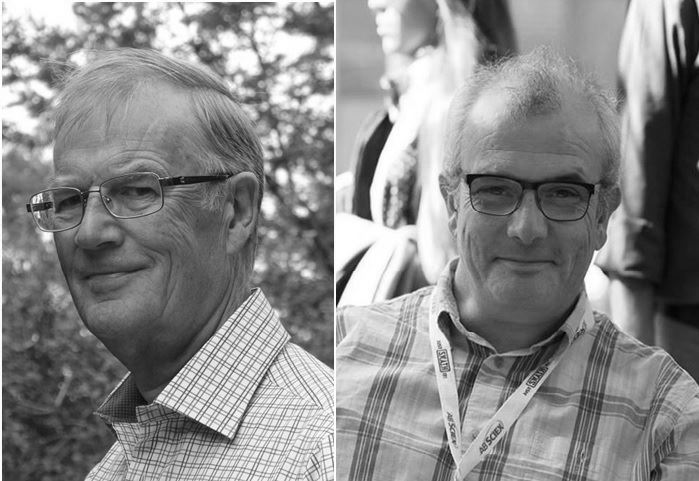|
HUPO Awards - 2017 RECIPIENTS |
Distinguished Achievement in Proteomic Sciences Award The Distinguished Achievement in Proteomic Sciences Award recognizes a scientist for distinguished scientific achievements in the field of proteomic science. (Sponsored by the Journal of Proteome Research - ACS Publications) SAMIR HANASH Anderson Cancer Center, University of Texas, USA Dr. Hanash is a true leader in the cancer research field who has made significant advances in the use of proteomics in cancer research for the understanding of the disease process and markers for early detection. He was the inaugural president of the Human Proteome Organization, and a founder of the US Human Proteome Organization. In 2006, Nature Biotechnology listed him as one of the top 50 Who’s Who in biotechnology for his work on cancer proteomics. Dr. Hanash has made seminal contributions to lung and breast cancer using innovative proteomics, and has consistently been highly productive through his long and distinguished career. He has published over 390 papers, of which 160 are as a corresponding author in top-tier journals such as Science, Nature, Nature Medicine, Nature Biotechnology, and Cancer Cell. Dr. Hanash is a true leader in the scientific community who has made great scientific advances in the proteomics field. Few have contributed so profoundly to our understanding of molecular markers as early signs of risk, disease or treatment response using proteomics as Dr. Hanash, and we are proud of his distinguished achievements to date. Discovery in Proteomic Sciences Award The Discovery in Proteomic Sciences Award recognizes a scientist for a single discovery in the field of proteomics. (Sponsored by Journal of Proteomics - ELSEVIER BV) Shared by two recipients ILEANA CRISTEA Department of Molecular Biology Lewis Thomas Laboratory Princeton University, USA Dr. Cristea a Professor in the Department of Molecular Biology at Princeton University. She performed her graduate research at the Michael Barber Center for Mass Spectrometry, University of Manchester, U.K., under the supervision of Simon Gaskell, and at the Toxicology Research & Development Department at GlaxoSmithKline, U.K. She pursued her postdoctoral work in the mass spectrometry laboratory of Brian Chait at The Rockefeller University. Dr. Cristea's research has led to many critical findings in virus-host interaction biology, identifying mechanisms used by viruses to manipulate their hosts, as well as defenses hosts deploy to protect themselves from viral attack. She elegantly blends cutting-edge technologies such as proteomics, optogenetics, imaging methods in order to test carefully and intelligently posed hypotheses. Her most recent, impressive achievements include the discovery of the nuclear viral DNA sensors (such as IFI16 and IFIX) and studies of intricate protein-protein interactions involved in the defense against viral infections. We congratulate Dr. Cristea for her outstanding achievements culminating in the Discovery in Proteomics award. CHRISTOPHER OVERALL Life Sciences Institute/Centre for Blood, University of British Columbia, USA Dr. Overall, a native of Australia, is a Professor and Tier 1 Canada Research Chair in Protease Proteomics and Systems Biology at Life Sciences Institute, the University of British Columbia (UBC) Canada. He is the pioneer of degradomics, a term he coined, developing world-leading innovative technologies for quantitative proteomic methods using polymers (N- and C-TAILS) to uniquely enrich and identify proteolysis products in vivo and readily identify and quantitate the captured components by mass spectrometry. To improve C-termini identification he and his colleagues discovered a new Archea protease LysargiNase that mirrors trypsin specificity to generate peptides with R/K at the N terminus. He has revolutionized the identification of protein natural N and C termini, proteolytic cleaved neo-N- and neo-C-termini, proteolytic proteoforms, and has provided a wealth of knowledge to allow the understanding of the roles of proteases in human physiological and pathological processes. It is natural that many of these have now become intense research as drug targets due to the efforts by Dr. Overall and his work has resulted in many papers in top-tier journals. He has mentored more than 56 scientists spanning the globe, and together with HUPO, we congratulate Dr, Overall on the award for Discovery in Proteomics. Clinical and Translational Proteomics Award This award recognizes a scientist in the field of clinical and translational proteomics. (Sponsored by Clinical Proteomics - BioMed Central) Sudhir Srivastava
|


%20BW.jpg)
%20BW.jpg)





.png)
















